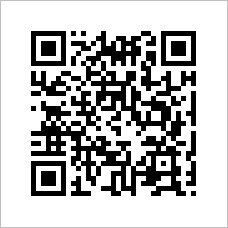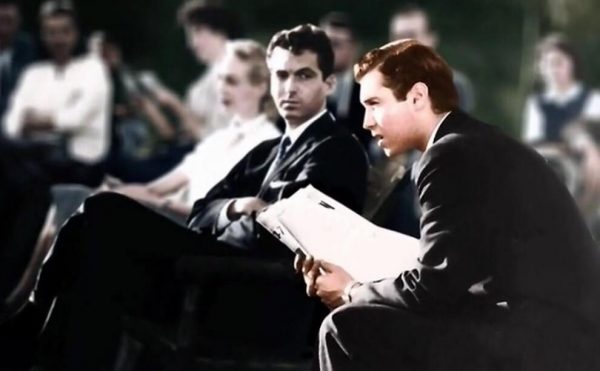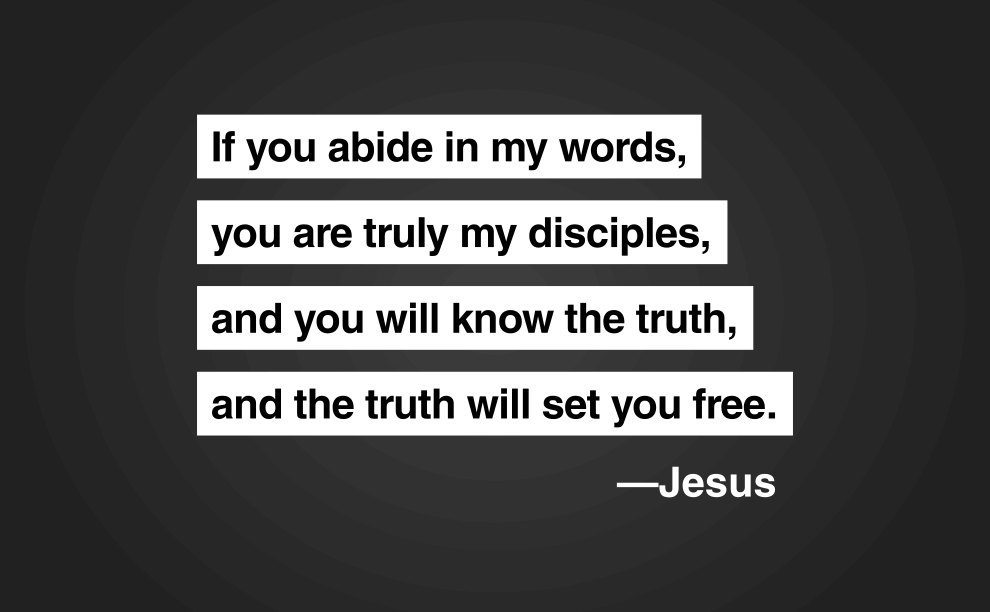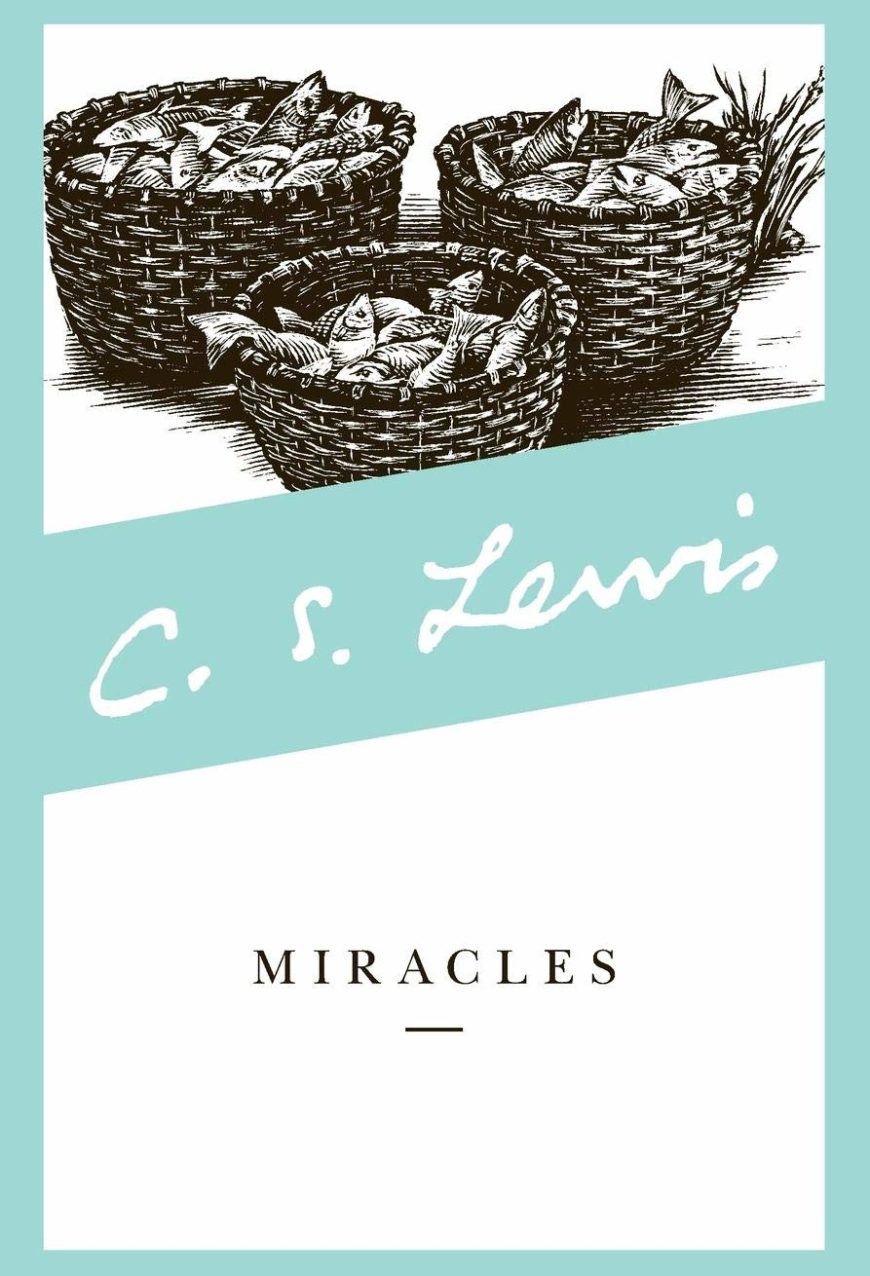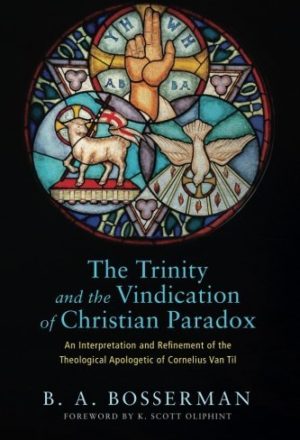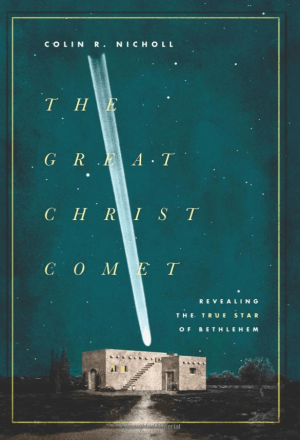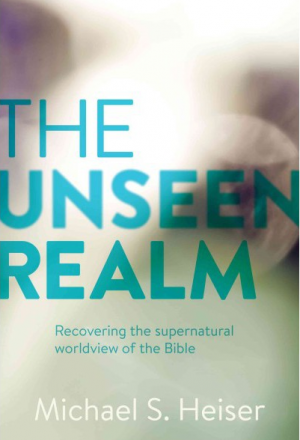B. A. Bosserman. The Trinity and the Vindication of Christian Paradox: An Interpretation and Refinement of the Theological Apologetics of Cornelius Van Til. Eugene: Pickwick Publications, 2014. xxiv + 268 pp.
Embracing A World With Paradox in its Nature
The Trinity and the Vindication of Christian Paradox, by B. A. Bosserman may not seem to be a relevant book for a blog developing a “gospel hermeneutic of stranger things” at first glance. However, it lays some foundational groundwork in our thinking that is important for a distinctly Christian view of the world which frees us to reject reductionist, rationalistic lenses, and provides a lens more compatible with the biblical world of strange and wonderful things. Rather than seeing paradoxes such as the Trinity, the hypostatic union, or God’s sovereignty and man’s responsibility as contradictions, Bosserman challenges us to embrace a metaphysic and an epistemology rooted in and modeled after God’s triune nature, which is able to delight in paradoxes as mutually implying one another rather than rejecting them as mutually excluding one another. This is not a postmodern abandonment of reason or truth, but it is a call to a copernican revolution in philosophy where the Triune God, rather than the reasoning of men is the center of reality.
The outflow of this shift in thinking is an increased delight in mystery and awe, an epistemological humility, and an ability to hold things together that the modern mind may want to separate. A relevant example for us includes natural and supernatural causes working in tandem in the world. Embracing this complexity of causation will prevent us from falling into the skeptic’s error of reducing everything to purely natural causes by assuming that a natural explanation ends the discussion. On the other hand it will keep us from the error of magical thinking, where we ignore natural causes in light of supernatural ones, resulting in the sometimes-valid critique of Christians providing a “God of the gaps” or a “ghost in the machine,” preventing us from thinking carefully about natural causes. This way of seeing reality uniquely allows the Christian to experience the world we truly live in, delighting in and carefully examining natural mechanisms, while simultaneously pondering and exploring supernatural causes behind what we observe. Seeing how Bosserman develops his vindication of Christian paradox in the book will help flesh out the concepts raised in this introduction.
Summarizing Bosserman on Paradox
Bosserman’s book is not primarily aimed at increasing wonder nor even at developing a Christian worldview, but rather at developing a distinctively Christian apologetic. This is demonstrated in the subtitle of the book, An interpretation and Refinement of the Theological Apologetic of Cornelius Van Til. This highlights the extent to which the book is a specific interaction with the apologetics of Cornelius Van Til. For this reason, he begins with an examination of the theological and philosophical influences on Van Til in part one.
Interestingly, the influences on Van Til are three-fold: Old Princeton, Old Amsterdam, and Absolute Idealism. Bosserman’s first section shows how Old Princeton imbued Van Til with his Reformed theological perspective and Trinitarian foundation. It demonstrates how Old Amsterdam gave him his doctrine of the antithesis between Christian and non-christian worldviews, as well as the threefold realms of Christian knowledge in God, man, and nature. Finally this section shows that Van Til learned from the absolute idealists his exclusive dedication to the transcendental argument for theistic proof, and his view of God’s revelation as progressive throughout history. This section is informative and interesting as a bit of historical theology illuminating Van Til’s unique approach to theological apologetics. Those not interested in Van Til or his apologetic may find themselves wanting to skip this section.
The second part of Bosserman’s book highlights Van Til’s distinctively Trinitarian approach to theology, apologetics, and worldview. Because God’s triune nature is the heart of Van Til’s system, paradox and mystery are also close to the heart of his thinking. Bosserman quotes Herman Bavinck as having a similar approach, saying “mystery is the lifeblood of all dogmatics” (81). This approach is developed first in the Transcendental argument for the Triune God, making the case that God’s existence as Father, Son, and Holy Spirit, is the necessary precondition for reality. He focuses on the problem of the one and the many, and demonstrates Van Til’s attempt to show that only the Triune God can resolve this old philosophical conundrum because he is, paradoxically, a concrete universal.
Bosserman goes on to outline Van Til’s trinitarian epistemology over a few chapters, most interestingly in his chapter on a Trinitarian logic. A view of logic shaped by the starting point of the Triune God must include both analytic and synthetic elements where knowledge is sought both by looking at the individual parts of a thing, as well as looking at groupings of things together. Our conceptions of logic must not shape our view of the Trinity and other paradoxical doctrines revealed in Scripture, but rather the Trinity and Scripture must shape our view of logic. There are no impersonal laws floating in the heavens that dictate possibility or necessity to God or men, rather our logic flows out of the being of the Triune God who is there.
The third section of Bosserman’s book is a brief critique of Van Til which sets the stage for Bosserman’s own attempt in section four to remedy what he found incomplete in Van Til’s work. The main critique leveled in part three is that while Van Til has cogently argued for the triune God as the necessary precondition for all other thinking and being, he has not demonstrated why God’s oneness implies his three-ness. It is necessary for Van Til to do so, since his argument for God depends on the impossibility of the contrary. However, Bosserman can conceive of a God who is simultaneously one and more than three, and this god could equally be the ground of all reality by the same arguments Van Til uses for the necessity of the Triune God. Thus, Bosserman’s critique is that Van Til needs to demonstrate why God needs to be uniquely three as well as one.
Bosserman concludes his work by attempting to make up what he found to be lacking in Van Til’s apologetic by demonstrating that God’s oneness implies his three-ness. This section contains some very complex philosophical arguments that will be difficult to summarize in review form, but I will point to one dominant idea that gives shape to much of the final section. The idea is that each member of the Trinity includes the whole dynamic of relationships within the Trinity. For example the Father is the context of the relationship between the Son and the Holy Spirit, and their relationship with each other is contained within his relationship with them. If there were only two persons of the Trinity, there would need to be some other context in which they relate to one another, but the need for that context would mean that God was incomplete in his own being, and the context of his relationships would be impersonal. If there were more than three persons in the trinity, then each would not be able to fully contain the relationships of the others and some would have relationships with others that leave still others out. Thus Bosserman attempts to demonstrate that the reality of the one and the many implying and containing each other requires a metaphysical foundation that is uniquely both one and three.
Responding to Bosserman
Bosserman’s work is deep and rich with insights into Van Til and the presuppositionalist history and philosophy. It also represents a noble attempt to advance this position by taking necessary next-steps and filling out missing points in the system of Van Til.
My first response is not a critique, but is simply an observation that this book has a narrow aim that will be helpful and interesting to a fairly small number of people. This does not mean the book is unhelpful, or even that it won’t have a major impact on Christian thinking. It does mean it may not have a very broad readership. Philosophy is important, and drills into the assumptions and foundations of ways of thinking, and this book is a work of philosophy. So while it does some helpful work in presenting Van Til and his school of thought, refining one very specific line of argument, it does not provide much immediate apologetic material for the average Christian reader. This book is about one part of one argument for the existence of God. This is not a criticism, because this one argument is very important and foundational, but it means that the book is accomplishing a very specific purpose for a fairly specific set of people. Readers considering picking up this book should be aware of this.
My next interaction is more of a direct critique. At times in following Van Til and attempting to vindicate paradox, Bosserman seems to border on embracing actual contradiction. For example, he positively cites Van Til calling God one person and three persons. It is commonly stated that God is one God eternally existing in three persons, which helps to maintain that he is one in one sense and three in another sense. This demonstrates that God’s truth is not self-contradictory, in that he cannot be said to be one and not-one at the same time and in the same sense. Bosserman and Van Til are rightly concerned that we don’t treat the laws of logic as something separate from and binding upon God, which would be idolatry. But there is a way to see God in line with the law of contradiction as part of his nature, rather than as an external impersonal standard. There would seem to be an analogy to the fact that God cannot lie, not because there is some standard of truth outside of himself, but because he himself is the standard.
I wonder if the willingness to suggest language that sounds like a genuine contradiction flows from the notion expressed in the book that logic is a creation of God (p. 35). If logic is merely a function of creation, like time or the laws of nature, then God may choose to circumvent those rules. But if logic is an attribute of God, like the moral law, then it would be inviolable. It seems to me important to consider logic as an attribute of God rather than a creation of God because I think scripture suggests it, and it has important implications. Calling Jesus the divine logos is not the same as calling him logic, but a conceptual link is surely there. When Jesus tells us in John’s gospel that he is the truth, it seems to be the same truth revealed to us, such that God doesn’t function on a different type of truth than we do. If logic is a creation of God, and is violable by him, then it makes it hard to see how we could come to know his truth in a meaningful sense. In our ethical knowledge of God, we have certain time-specific applications of the good (think food laws) which are not themselves ultimately direct expressions of something in God’s own character. However, we do have clear revelation about specific elements of goodness foundational to God’s own character, which we know will never change (e.g. God cannot lie). Truth has a similar function in that God’s revelation of the truth is progressive over time, and some truths are revealed in stages that demonstrate increasing complexity (like the doctrine of the Trinity itself), but truth is itself bound up in God’s own character and is unchanging. The law of contradiction seems fundamental to the very notion of truth, in that it excludes its opposite, a lie.
If we set out to vindicate paradox, a strong definition of contradiction will serve us well so that we don’t have a sliding scale from paradox to contradiction, leading to an epistemology untethered by observable bounds to truth. If we are embracing contradiction, then when Jesus says he is the truth, he could also at the same time and in the same sense be saying that he is not the truth. This would unravel all thought and communication. Having expressed this concern, I am all for recasting our metaphysics and epistemology, as well as our ethics after the image of the Triune God. I think there are all kinds of fruit that will come from this project. I think it will serve the project well if we distinguish clearly between paradoxes which we should embrace in mystery, and contradictions, which we should resist with clarity. I believe viewing logic as an attribute rather than a creation would aid in that work.
With these boundaries firmly in place, we could be free to develop a much more embracive worldview where we can see things that appear to be in tension actually in healthy relationship with one another, and if Bosserman is right, mutually implying one another. It is like Spurgeon famously said when asked how he reconciles the doctrines of God’s sovereignty and human responsibility, “friends don’t need to be reconciled.”
Delighting in the Paradox
If we see our world as full of mystery and wonder and richness like this, we may begin to see levels of wonder we were previously closed off to. We may begin to see that poetic knowledge and scientific knowledge imply and inform one another rather than compete with each other. We may begin to see that Modernism’s analytical intelligence works well alongside postmodernism’s intuitive and emotional intelligence, and vice versa. We may begin to see that natural and supernatural causes can work together without excluding one another. We may begin to see all kinds of strange wonders in this world without becoming untethered from a robust and careful analysis of what is true and real.

